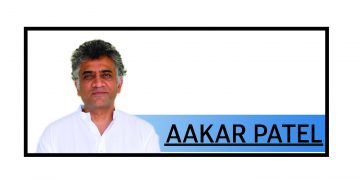Literary critic and writer Sisira Behera was selected recently for the Kendra Sahitya Akademi Yuva Puraskar for the year 2019 for his book Bimugdha Uchcharana. A gold medallist of Ravenshaw University with 10 books to his credit, Sisir could not afford a power connection at his home till he completed his PhD. The 32-year-old researcher, critic, writer and translator from Govindpur village in Tangi, Cuttack district studied with the help of kerosene lamps. His journey has been tough, but his story is inspirational. Currently, an assistant professor in the Odia department of North Orissa University, Sisira shares the story of his struggles and achievements with Bijay Mandal.
Sunday POST: It is easier to connect with readers through novels, short stories and poems. So, what attracted you toward literary criticism?
Sisira Behera: It is not entirely true that we can connect with readers only through novels or poems. It depends on the taste of the readers. I have also written a lot of poems in my student days. Novels, poems or short stories are original creations while literary criticism or review weighs the real value of those creations. The original creations entertain the readers, but criticism helps them enhance their intellect. Being a student of literature, I read everything, but it gives me joy to write a criticism or do a review.
SP: You have won the Akademi award for literary criticism. Which areas of literature do you work in?
SB: I am a student of Odia language and I teach in the North Orissa University. So, for me, all sections of literature are equally important. I read poems, short stories, novels, dramas and translated literature. I also follow discussions on folk literature. I have included all these aspects in my research. However, my favourite section is poetry. I love to read ancient and medieval poems. This apart, I like translated works also. Now, I spend more time on translation to introduce Odia readers to the literature of other regional languages.
SP: You have struggled hard to reach where you are today. Tell us about your journey so far.
SB: We couldn’t afford power connection at home till I completed my PhD and I managed my studies with the help of kerosene lamps. This sums up our struggle for survival. My father Jagannath Behera is a tailor who travels from village to village carrying his sewing machines on a cycle. He manages a family of seven, including two sons, two daughters, wife and his mother, with whatever he earns from tailoring. Whatever little I have achieved today is because of him. Though I wanted to study science, due to poverty I took admission in Plus II Arts after my matriculation in Mahapurusha Hadidas Mahavidyalaya in Chhatia. After completing my graduation, with Odia as honours subject, with a first class, I joined Ravenshaw University for my post-graduation. I topped the university and won a gold medal in PG. At that time in 2008, I used to take Rs 10 (of which Rs 9 was spent on bus fare) from home for the day. Despite being a gold medallist, uncertainty continued, and I couldn’t arrange money for my PhD registration. I decided to enrol myself in a 10-month diploma course in Bangla. The objective was to get a stipend of Rs 5,800 that would ease my life a little bit. Then I joined Ravenshaw University as a guest lecturer and with that remuneration I took electricity connection at home. Meanwhile, I cleared NET and JRF under UGC and managed to get PhD registration. Then I cleared SSB and OPSC and now I am working in North Orissa University.
SP: Many established writers feigned ignorance about your presence in the literary circuit. They said they have not heard about you before.
SB: I feel humbled after getting loads of good wishes, love and blessings from all sections of society including many stalwarts of literary circuit after I was chosen for the award. These are precious gifts for me. I have also received hundreds of congratulatory messages from young and old alike and this is humbling. I bow before everyone including those people who haven’t heard or read me. I am sorry for the fact that I have failed to reach them.
SP: A writer often doesn’t take criticism positively. Would you agree?
SB: A creative writer always looks forward to the evaluation of his creation. Criticism not only brings flaws to the fore, it shows the excellence too. It is like a touchstone. The readers are also critics and they have the right to scrutinise the creation of a writer and give their opinion. But critics should be unbiased and fearless. Belittling or badmouthing a creation is not criticism. A critic should find both the pros and cons of a creation. There is no question of not accepting the criticism.
SP: It is alleged that social media has created quite a few poets and writers, but the quality of literature has declined. What is your view?
SB: Social media is a system through which things can be promoted. You can’t say all people who write on social media are experts in literature. However, many writers now help in creating new readers and writers too. Literature is always sacrosanct and timeless. All kinds of writings do not come under the literature category. The readers are the real examiners. They don’t accept those who claim they are litterateurs. But I believe that social media has helped in raising the standard of literature by creating more writers and has exposed the frauds.
SP: It is not only in literature, but we lack positive criticism in other creative areas such as theatre and fine arts. Your thoughts.
SB: We don’t lack critics in other departments but there is a need to increase their number. Literary criticism does not belong to a language. Moreover, it is interdisciplinary. Renowned Sanskrit scholar and philosopher Surendra Nath Dasgupta authored a book Kavya Vichar on theatre, fine arts and aestheticism. The translated version of this book will soon be on the stands. This will certainly get acceptance among young critics.
SP: What is your next plan?
SB: I am a student and teacher of Odia language. I have just started making an effort to serve Odia literature with my limited knowledge. There is a wide canvas. There is a lot of scope for research and analysis. I am reading my predecessors and contemporaries. I have planned a lot of things on translation which is an important segment of literature.






































